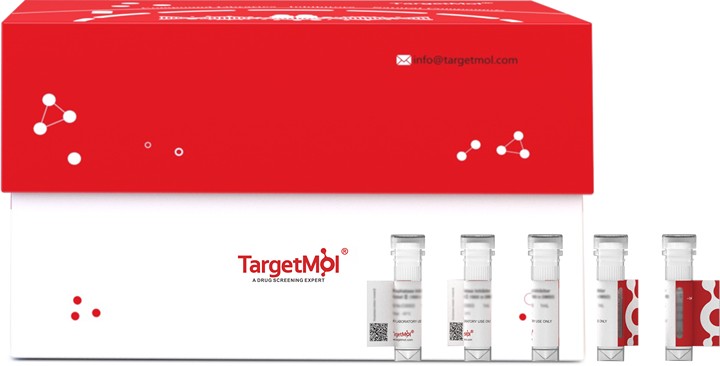RIPK1 Protein, Mouse, Recombinant (His)
Product Code:
TAR-TMPH-02876
TAR-TMPH-02876
Regulatory Status:
RUO
RUO
Shipping:
cool pack
cool pack
Storage:
-20°C
-20°C
Special offer! Add £1 to your order to get a TargetMol CCK-8 Kit. Read more here.
No additional charges, what you see is what you pay! *
| Code | Size | Price |
|---|
| TAR-TMPH-02876-100ug | 100ug | Enquire | |||||||||||||||||||||||||||||||||||||||||||||||||||||||||||||||||||||||||||||||||||||||||||||||||
| Special offer! Add £1 to your order to get a TargetMol CCK-8 Kit. Read more here. | |||||||||||||||||||||||||||||||||||||||||||||||||||||||||||||||||||||||||||||||||||||||||||||||||||
Quantity:
| TAR-TMPH-02876-1mg | 1mg | Enquire | |||||||||||||||||||||||||||||||||||||||||||||||||||||||||||||||||||||||||||||||||||||||||||||||||
| Special offer! Add £1 to your order to get a TargetMol CCK-8 Kit. Read more here. | |||||||||||||||||||||||||||||||||||||||||||||||||||||||||||||||||||||||||||||||||||||||||||||||||||
Quantity:
| TAR-TMPH-02876-20ug | 20ug | Enquire | |||||||||||||||||||||||||||||||||||||||||||||||||||||||||||||||||||||||||||||||||||||||||||||||||
| Special offer! Add £1 to your order to get a TargetMol CCK-8 Kit. Read more here. | |||||||||||||||||||||||||||||||||||||||||||||||||||||||||||||||||||||||||||||||||||||||||||||||||||
Quantity:
Prices exclude any Taxes / VAT



